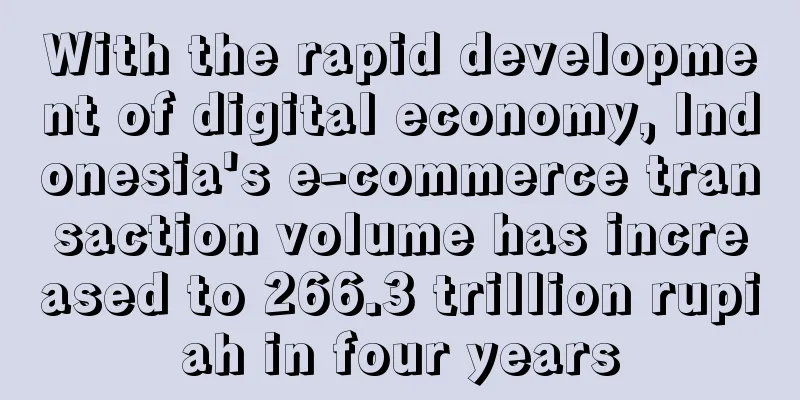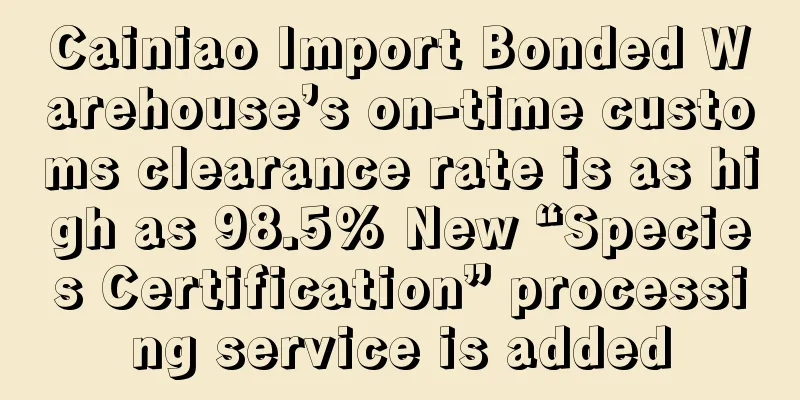With the rapid development of digital economy, Indonesia's e-commerce transaction volume has increased to 266.3 trillion rupiah in four years

|
The emergence of e-commerce in Indonesia has enabled many Indonesian residents to buy desirable goods without leaving home, but this transformation is a major challenge for traditional shopping malls, whose merchant occupancy rate is getting lower and lower. According to the e-Conomy SEA 2020 report released by Google and Temasek , Indonesia's e-commerce GMV is expected to grow 21% from 2020 to US$83 billion between 2020 and 2025. In recent years, the development of e-commerce in Indonesia has indeed been rapid and remarkable. During the period from 2017 to 2020, the transaction volume of e-commerce in Indonesia increased from 42.2 trillion rupiah to 266.3 trillion rupiah. In just four years, the transaction volume increased sixfold. A survey conducted by Statistics Indonesia showed that the highest distribution of e-commerce users in Indonesia is in Jakarta, accounting for 58%. This also shows that Indonesia's e-commerce is developing fastest in large cities, because large cities have sufficient facilities and infrastructure support. Data shows that between 2017 and 2020, Jakarta's e-commerce transaction volume increased fivefold from 24.48 trillion rupiah to 154.45 trillion rupiah. The chairman of the Indonesian E-Commerce Association ( IDEA), Bimalaga, stressed that the e-commerce industry will continue to work hard to support and encourage the products of Indonesian micro and small and medium-sized enterprises to go global. Because now many Indonesian e-commerce platforms have begun to go global, including Traveloka and Bukalapak . It can be seen that the development of Indonesia's e-commerce platform is no longer limited to Southeast Asia, and now there are more ways to go global. This idea of encouraging going global not only promotes the development of e-commerce in the country, but also encourages other countries or regions to utilize and develop digital technologies and accelerate the digitalization process. Not only that, the Indonesian government has also developed the Indonesian Proud Manufacturing Initiative ( BBI) to promote MSME products. The Indonesian E-Commerce Association will also continue to encourage e-commerce in Indonesia and provide special tools to promote Indonesian MSME products . However , in the past year, in addition to accelerating the pace of e-commerce going global, the Indonesian government has also been working to strengthen e-commerce regulations to manage the industry. As the Indonesian government strengthens its control over Southeast Asia’s digital economy, several e-commerce regulations implemented on Indonesian e-commerce platforms may burden the industry in 2021. Cross-border e-commerce market Southeast Asia |
<<: European cross-border e-commerce sales reach $146 billion
>>: Philippines' Kwik.insure launches online insurance marketplace
Recommend
Insomnia is a big problem! Searches for sleep apps increased by 104%
Under the influence of the epidemic, insomnia aff...
What is MOVESELL? MOVESELL Review, Features
<span data-docs-delta="[[20,{"gallery"...
What is Fetchr? Fetchr Review, Features
Fetchr is a smart logistics service company headq...
Millions of listings deleted! The crackdown is still ongoing...
Last year, cybersecurity researcher Andrea Stropp...
What is IPI (Inventory Performance Index)? IPI (Inventory Performance Index) Review, Features
IPI (Inventory Performance Index) refers to the i...
What is Xuhui Supply Chain? Xuhui Supply Chain Review, Features
Xuhui Supply Chain (Shenzhen Xuhui Supply Chain Co...
What is Pongoshare? Pongoshare Review, Features
Pongoshare is an Internet-based platform company t...
What is FasaPay? FasaPay Review, Features
<span data-docs-delta="[[20,{"gallery"...
What is skyherochina? skyherochina Review, Features
skyherochina professional sports helmet manufactur...
The cross-border revelation of an 85-fold surge in GMV: How to master localization in overseas beauty products
Another dark horse seller emerges in the overseas...
Warning! Amazon urgently removes dangerous goods
Recently, the U.S. Consumer Product Safety Commis...
Livestreaming sales are popular in the United States, but the prevalence of counterfeit goods has become a problem for TikTok and others
In recent years, live streaming has become extrem...
More than 30 countries, over 8,000 products, the 55th Overseas Shopping New Year Festival is here!
As the Spring Festival approaches, many residents...
eBay launches new features to help sellers promote their products
eBay 's latest advertising feature, Advanced ...
What is YDH International Logistics (YDH)? YDH International Logistics (YDH) Review, Features
Yida International Logistics (Shanghai Yida Intern...









